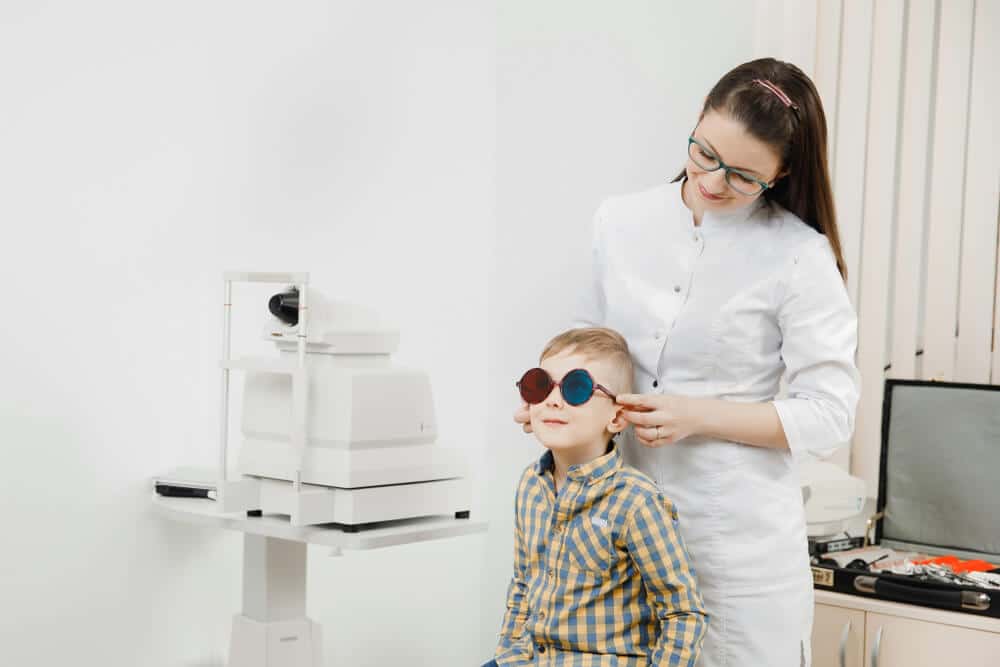Many people assume that glasses or contact lenses are the only solution for vision problems. While these tools correct refractive errors like nearsightedness and farsightedness, they do not address underlying issues related to eye coordination, tracking, or focusing abilities. This is where vision therapy complements traditional eye care, offering solutions beyond just clearer sight.
Vision therapy is a structured program designed to train and strengthen the visual system. It is often prescribed for individuals with conditions like amblyopia (lazy eye), strabismus (eye misalignment), and difficulties with eye teaming and tracking. By integrating both traditional methods and vision therapy, patients can experience more comprehensive improvements in their visual health.
What Is Vision Therapy?
Vision therapy is a customized, doctor-supervised program that helps improve various aspects of vision function. It involves exercises and activities that train the eyes and brain to work more efficiently together. Unlike corrective lenses, which simply adjust how light enters the eye, vision therapy targets the neurological connections that control visual skills.
Who Benefits from Vision Therapy?
- Children with learning difficulties: Some children struggle with reading and writing due to poor visual tracking or eye coordination.
- Patients with eye strain or fatigue: People who spend long hours on screens or reading often develop symptoms of digital eye strain, which vision therapy can help alleviate.
- Individuals recovering from brain injuries: Traumatic brain injuries can impact visual processing, and therapy can aid in rehabilitation.
- People with binocular vision disorders: Those who have difficulty focusing both eyes together can improve depth perception and eye teaming with structured exercises.
How Vision Therapy Complements Traditional Eye Care
Traditional eye care primarily focuses on detecting and correcting refractive errors through glasses, contact lenses, or surgical procedures. While these treatments are essential for clear vision, they do not address issues related to eye coordination, tracking, or focusing efficiency. This is where vision therapy bridges the gap.
Enhancing Visual Skills
Vision therapy trains the eyes and brain to work together, improving fundamental visual skills like:
- Eye tracking: Following moving objects smoothly and accurately.
- Eye teaming: Using both eyes together efficiently for depth perception and reading.
- Focusing ability: Adjusting focus quickly and accurately when looking at different distances.
Reducing Dependence on Corrective Lenses
While vision therapy does not replace the need for glasses or contacts, it can reduce dependency by strengthening visual skills. Some patients may experience less eye strain and fatigue, even when using lower-prescription lenses.
Improving Academic and Professional Performance
Poor visual function can interfere with reading comprehension, handwriting, and concentration. Vision therapy helps individuals process visual information more efficiently, leading to better academic and work performance.
The Future of Vision Care
With more people experiencing eye strain from digital screens and demanding visual tasks, the need for a well-rounded approach to eye care is more critical than ever. Optometrists and ophthalmologists increasingly recognize the value of integrating vision therapy into traditional treatment plans.
For those experiencing difficulties with reading, eye strain, or coordination issues, an eye care professional can assess whether vision therapy could be a beneficial addition to their current treatment. By combining prescription lenses with targeted exercises and visual training, individuals can achieve not just clearer sight but also improved eye function.
Final Thoughts

Glasses and contacts help correct vision, but they do not always address underlying functional issues. This is why vision therapy complements traditional eye care by improving eye coordination, tracking, and focusing abilities. Whether for children with learning difficulties, professionals experiencing digital strain, or individuals recovering from injuries, vision therapy offers a powerful tool to enhance overall visual health. If you or someone you know struggles with persistent vision problems despite having the right prescription, exploring vision therapy could be the next step toward lasting improvement. Contact Art of Optiks today.

